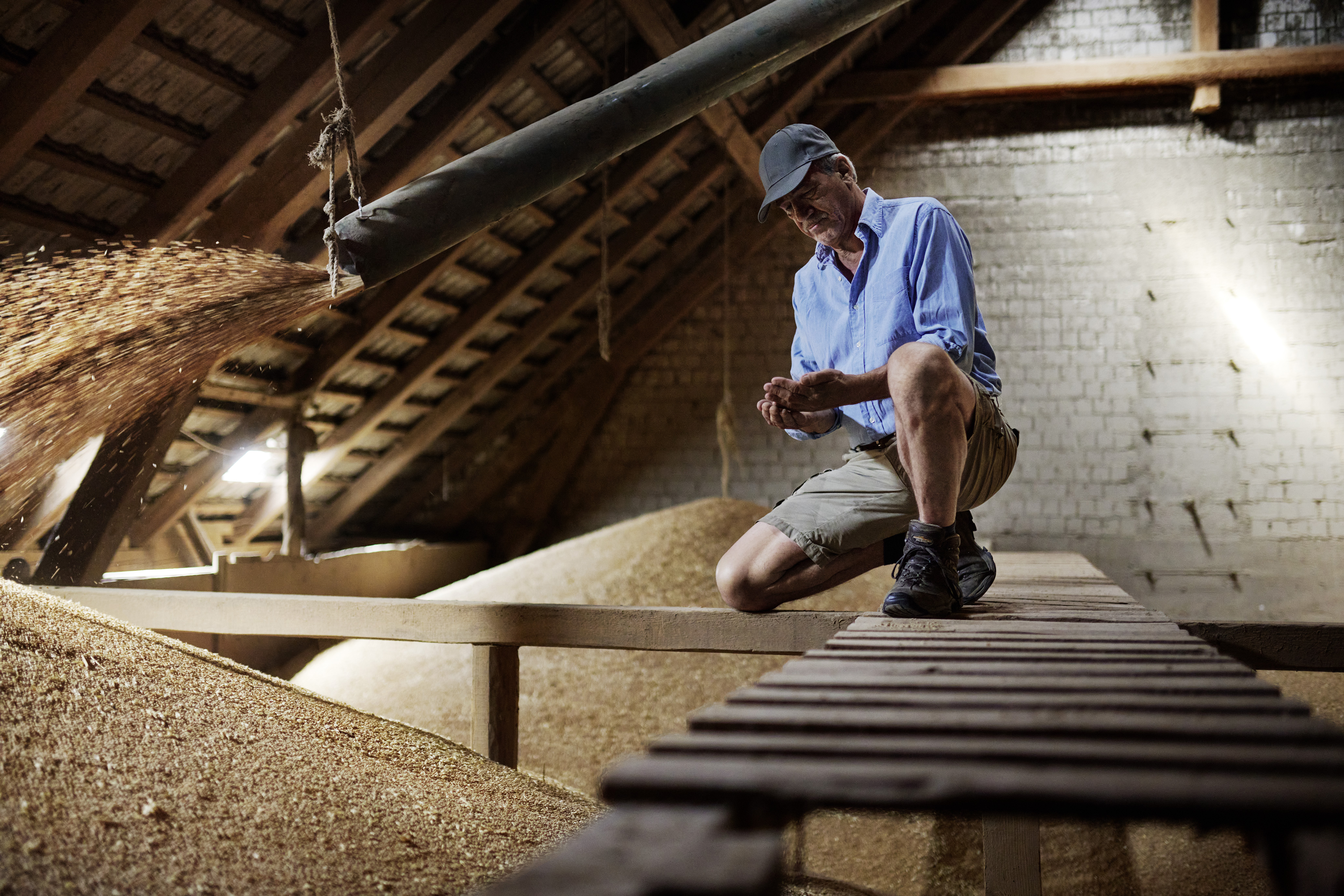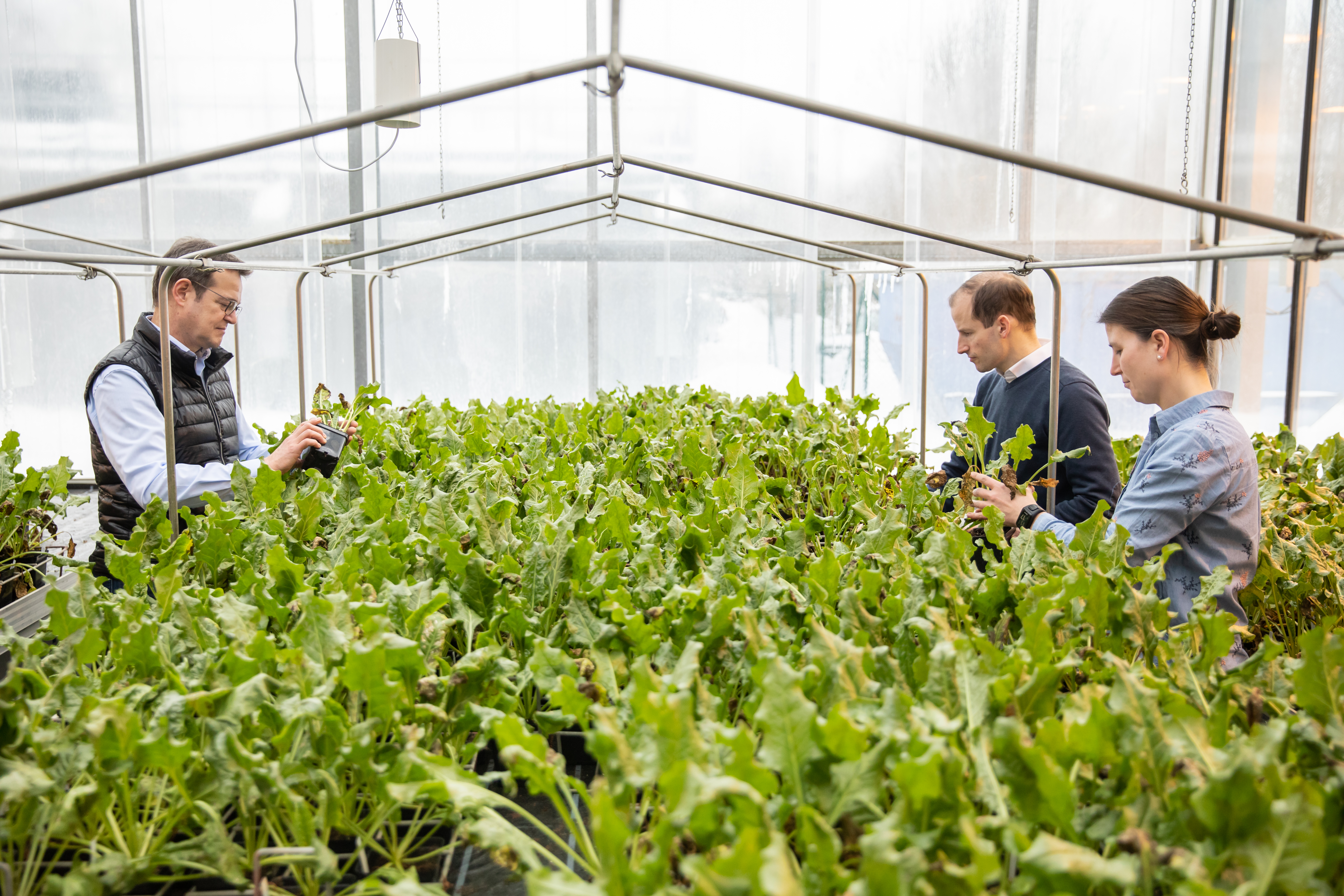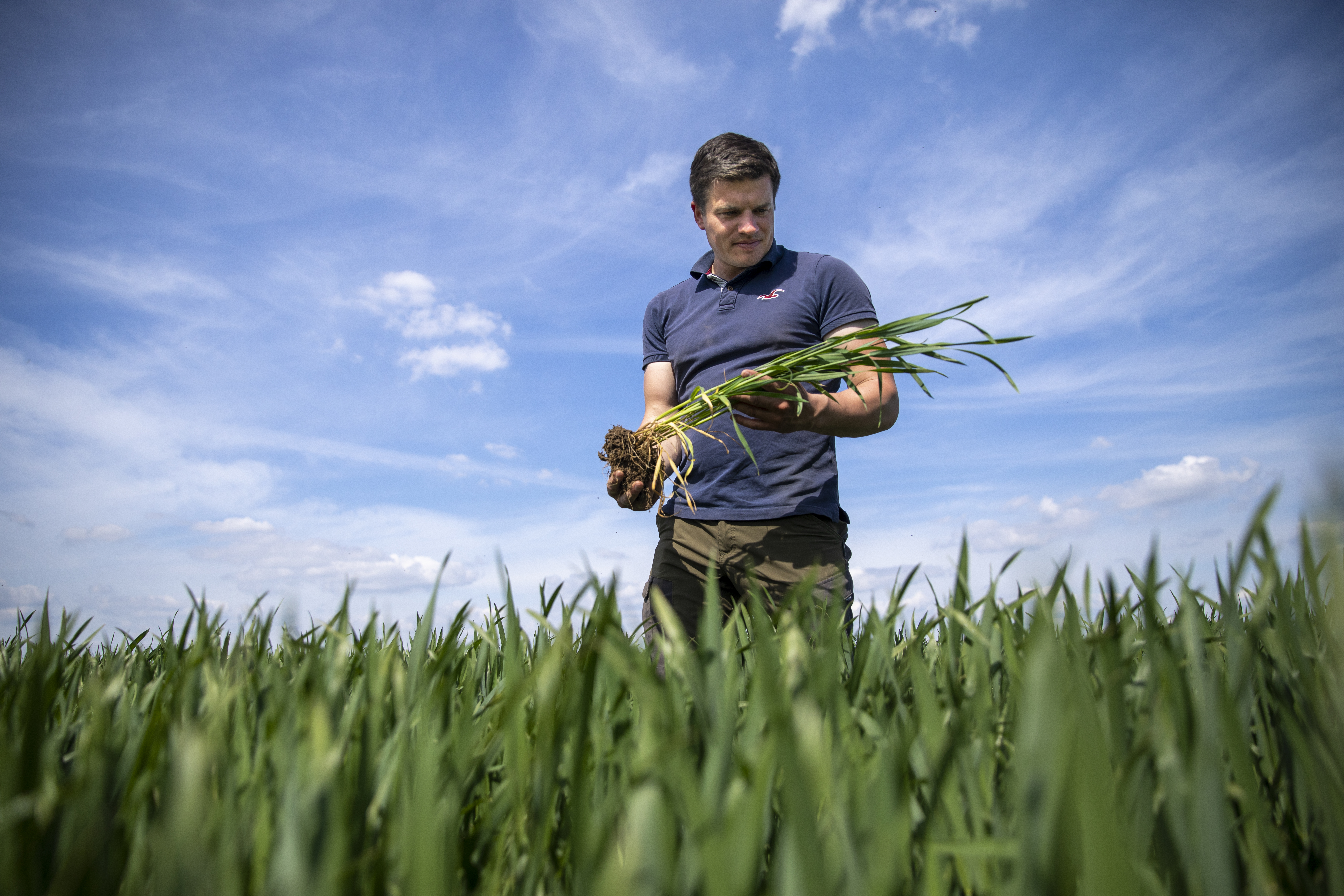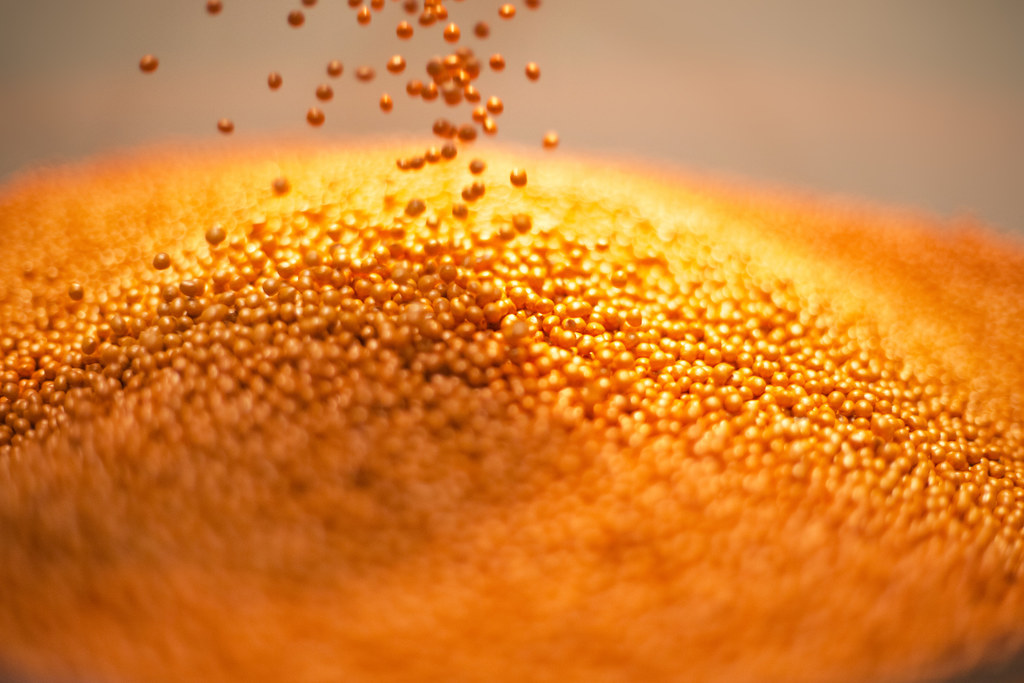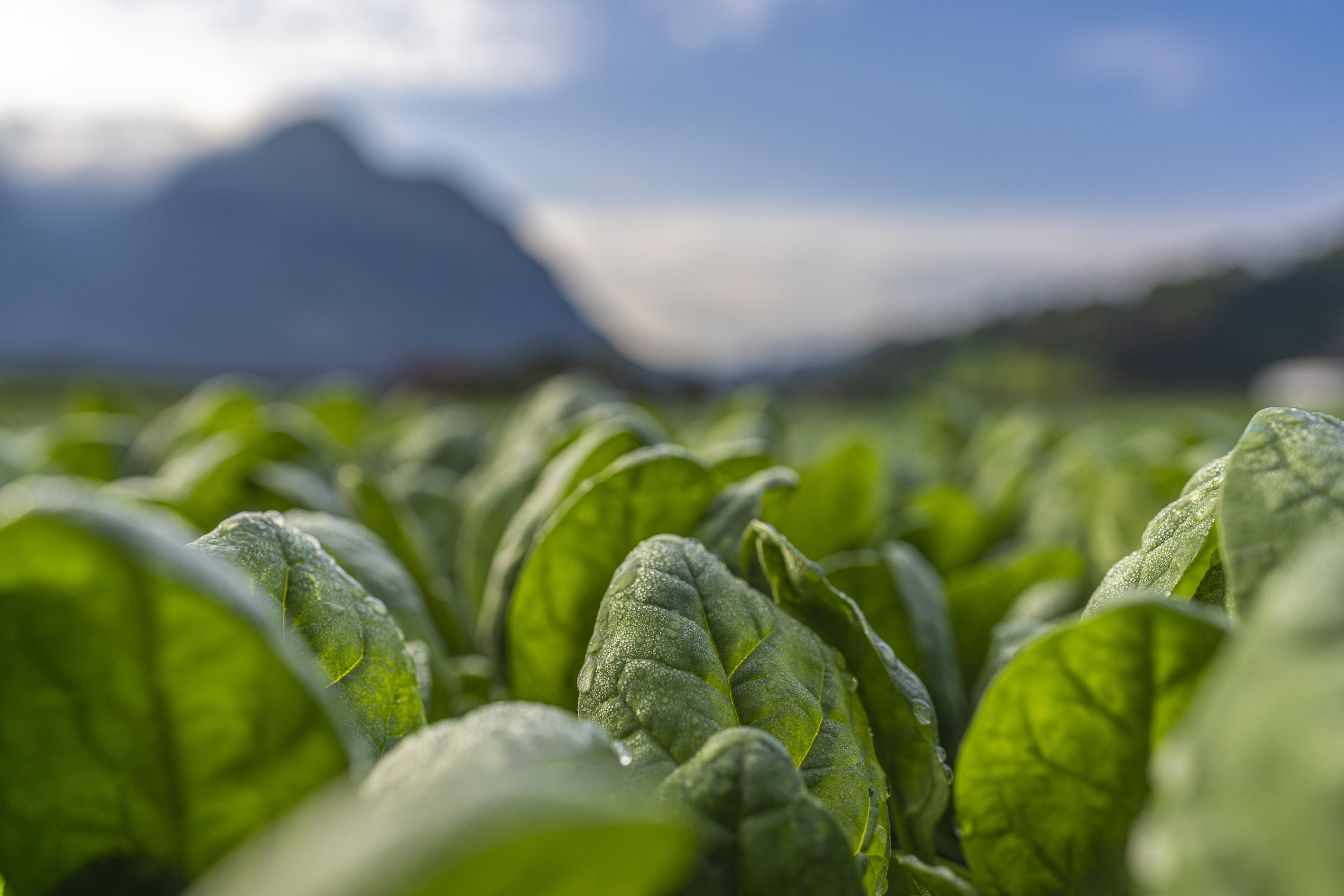Bringing less input and stable outcome together
Less arable land per capita, shrinking biodiversity and limited resources with a growing global population and the resulting demand for food are all aspects agriculture is facing today and in the future. One of the main focuses of our diverse KWS portfolio is on the reduction of pesticides, fertilizers and other agricultural resources in fields. At the same time, it helps to safeguard and increase urgently needed yields.
New and adapted varieties contribute to reducing the use of pesticides, fertilizers and other farming resources while also achieving high, stable yields.
Fight the pathogens: CR+ varieties create sustainable yield
20 years ago, KWS breeders started to develop a new resistance to Cercospora. The relevant trait was discovered in a wild beet closely related to the sugarbeet: The CR+ varieties with the new trait combine unprecedented protection against Cercospora with high yield performance - on areas with and without infestation. These varieties are an important building block in future Cercospora management and a significant innovation for the sustainability of beet cultivation in terms of integrated pest management - they support the goals defined by the EU within the Farm to Fork Strategy, which aims to reduce the use of chemical pesticides by half by 2030.
The diverse KWS crop and variety portfolio has been helping to reduce the use of fertilizers and crop protection
Best4N!
Find out more about our Best4N! concept for high
rapeseed yields with reduced fertilization:
KWS INITIO
Find out more about seed protection here:
Contact


